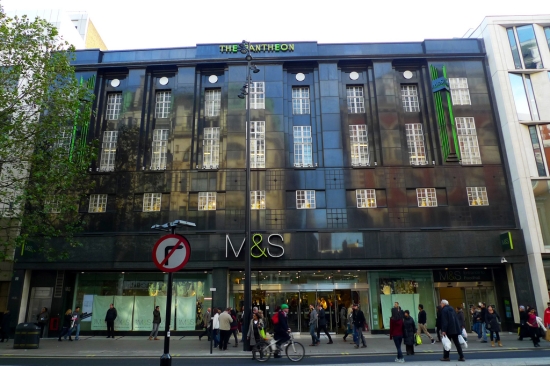The boom in internet shopping has changed the face of the retail industry substantially, with many consumers choosing to order everything from clothing to groceries online. This has caused many retailers to cut back on their store portfolios and instead concentrate their efforts on building a strong online platform.

However, in a recent survey of retail leaders, it was found that stores may not be quite as obsolete as many believe. More than two thirds of global industry executives questioned claimed that they still put more faith in their physical shops than their online offering.
In fact, 47 per cent of respondents believe that their more than half of their sales growth over the next 12 months will come from their physical outlets, while only 31 per cent claimed that online sales would achieve this target.
The study, conducted by the Australian Centre for Retail Studies, took into account the views of 156 senior staff members at international brands such as Tesco, Gap and Alliance Boots. It aimed to ascertain whether retail bosses will be putting their faith in online or bricks and mortar shops over the next 12 months – a question which the majority of retailers across the world currently face.
While accountancy firm Deloitte claims that smartphones will influence £18 billion worth of sales made in the UK this year, the study found that commercial property growth remains a key aspect of retailers’ business plans. More than half of participants intend to open new stores either at home or abroad in the coming year, with international expansion proving to be particularly sought after.
58 per cent of respondents expressed a desire to open new stores in their domestic market, which is a slight drop from the 63 per cent recorded at this point last year. However, with 55 per cent setting their sights overseas compared to only 52 per cent 12 months ago, it seems that the growing markets of countries like China and India remain a particular target.
Furthermore, executives demonstrated a growing confidence in the stability of the economy year on year, with 28 per cent now claiming that the current situation could have a strong impact on their business. This compares favourably with the 45 per cent who answered this way last year, showing the positive effect an upturn in consumer confidence has had globally.
One European executive believes that the recession has changed the way in which CEOs look at growth, saying; “I think it is best to remember that you are coming from a low base after a couple of years of slovenly retail growth, apart from Asia, and there is no doubt that CEOs now see ‘growth’ from a new base.”
With recent retail reports still showing monthly growth, although at greatly fluctuating rates, there is no doubt that the industry is now in a period of recovery. This will provide a boost to the retail property market but, given the difficulties that continue to affect the high street, it may be some time before vacancy levels fall significantly.
Previous Post
Designer Brands seek to Expand Bond Street Shops